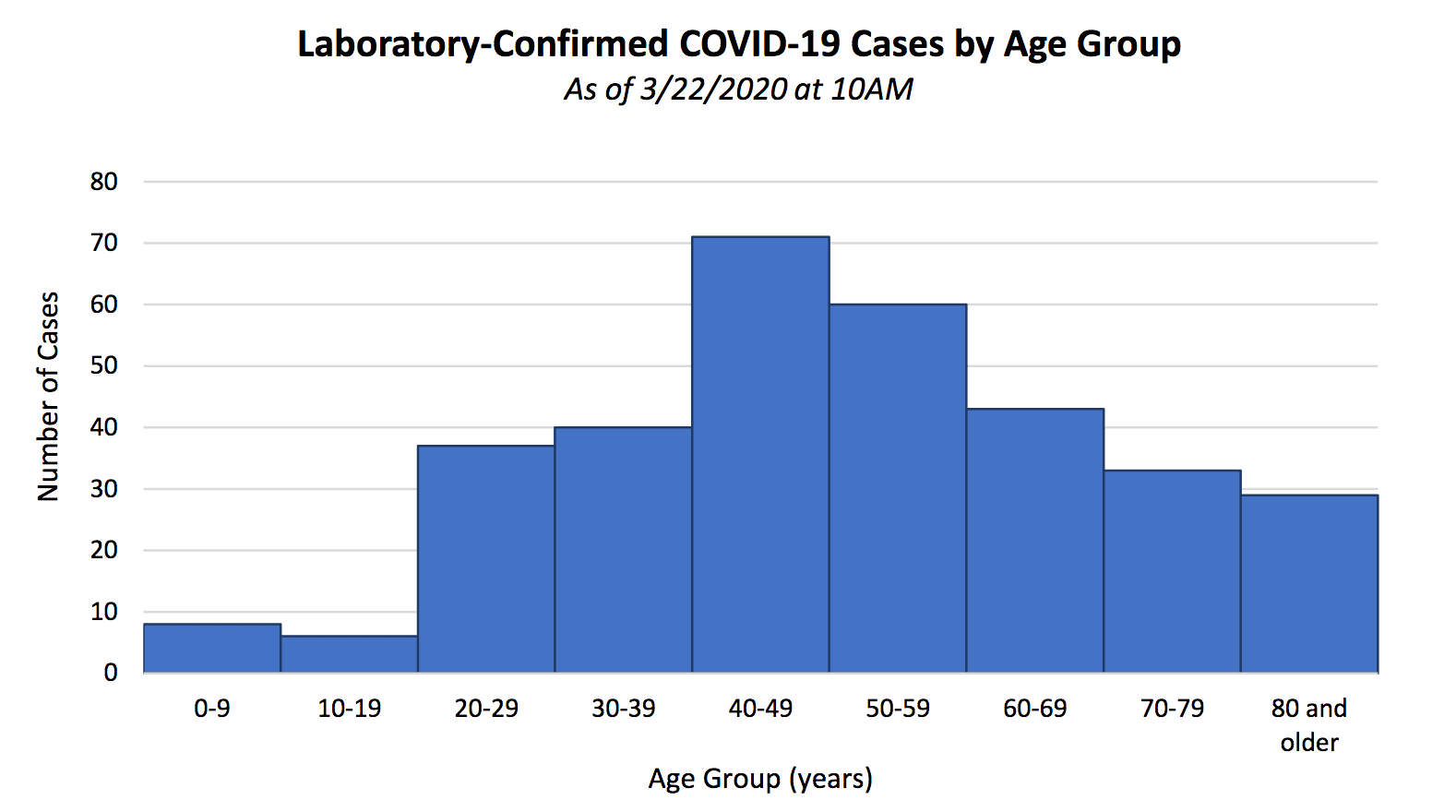The more people stay home, we can #FlattenTheCurve and allow our healthcare system to stay ahead of the surge.
I promise you everyday the State of Connecticut is doing everything we can to keep you and your families safe. pic.twitter.com/xoxCDRTrac
— Governor Ned Lamont (@GovNedLamont) March 21, 2020
As of Sunday the number of lab confirmed cases of COVID-19 in Connecticut is 327 and the number of deaths is 8.
The bulk of those confirmed cases are in Fairfield County, which has 208, and 5 of the state’s 8 deaths.
As of Sunday Greenwich has 31 confirmed cases of COVID-19; Stamford has 25 and Westport has 62.
In a statement on Sunday, Governor Lamont announced he will begin to use the Statewide Alert System to contact the over 4 million phone numbers in the state Sunday afternoon.
You can sign up for the alerts at www.ctalert.gov.
The state shared a breakdown of the impact of COVID-19 on Connecticut.

State of CT COVID-19 Update March 22, 2020
On Saturday Governor Lamont signed his tenth executive order, “7-I,” to slow the spread of COVID-19 in Connecticut.
The order provides broad relief for municipalities regarding procedures, notice requirements, and deadlines for various proceedings and decisions.
Order 7-I also enacted several changes to rules for municipal meetings, decisions, notice requirements, including additional budget adoption deadlines.
Also, 7-I enacts several necessary changes related to Medicare Part D and HUSKY B costs, student privacy, visitation in Dept of Children and Families facilities, pharmacy regulations, and corporate meetings.
Since Saturday, the State has had more than 100 responses to its request for personal protective equipment including clothing, helmets, goggles, or other garments or equipment designed to protect the wearer’s body from injury or infection. The items will be distributed to the appropriate hospitals and long-term care facilities.
The State is partnering with the United Way 2-1-1 organization of Connecticut in this effort. Specific items requested:
- N95 Respirators
- Face Masks/Surgical Masks
- Face Shields
- Surgical Gowns
- Gloves (nitrile, or non-latex)
- Thermometers
- Thermometer Covers (if applicable to type of thermometer)
- Hand Sanitizer
- Other Medical Items
To donate any of these vital materials contact the State by filling out the online form located atwww.211ct.org/DonationsCOVID19.
What is Considered Essential? Executive Order 7-H “Stay Safe, Stay Home”
The Governor’s executive order 7-H issued Saturday will close all non-essential, in-person business functions beginning Monday, March 23 at 8:00 pm.
Law enforcement, healthcare services, grocery stores, pharmacies, gas stations, liquor stores, banks and credit unions, auto repair shops, and hardware stores are some of the “essential” services that will remain open.
Restaurants are still allowed to provide takeout, curbside pickup and delivery.
Plumbers and electricians are also considered essential workers.
Per the Governor’s “Stay Safe – Stay Home” initiative, non-essential gatherings of any size for any reason should be canceled including parties, celebrations or other social events.
People should limit outdoor recreational activities or sports to non-contact and avoid activities where they come in close contact with other people.
Large shopping malls including SONO Collection and Stamford Town Center, as well as amusement parks and bowling alleys were ordered closed by 8:00pm on Thursday, March 19.
All DMV branch offices are closed to the public for transaction business until further notice. The DMV will provide services online, in the mail and by phone.
The American Dental Association has recommended that dentists nationwide postpone elective procedures and only treat patients in the case of a dental emergency.
Barbers, Salons, Tattoo Parlors, and Related Establishments were ordered closed as of Friday at 8:00pm, but Farmers Markets and farm stands can stay open.
The Commissioner of Public Health has prohibited any visitation to nursing care facilities except for first responders, including emergency medical services, law enforcement, firefighting and emergency management personnel.
Click here for a list of FAQ’s.
On Sunday evening Governor Lamont issued executive order 7-Jwhich amends 7-H to allow non-essential retail stores to be staffed on site an take remote ordering (phone / internet) with curbside delivery and pickup.
Also, 7-J modifies statutes to facilitate leasing or use of property by the State to address the COVID-19 emergency.